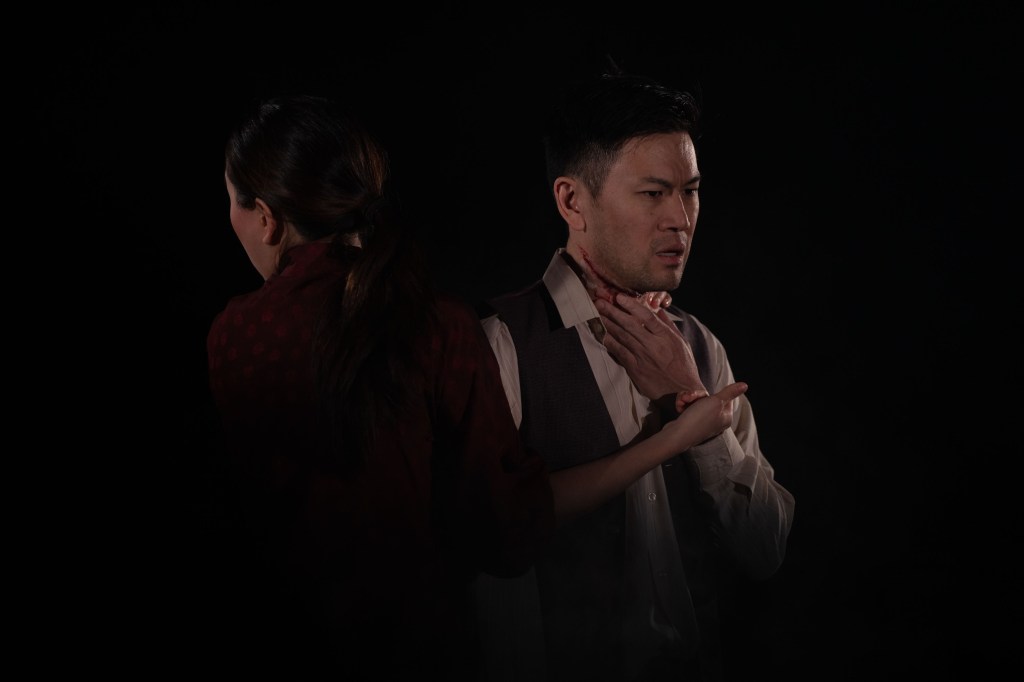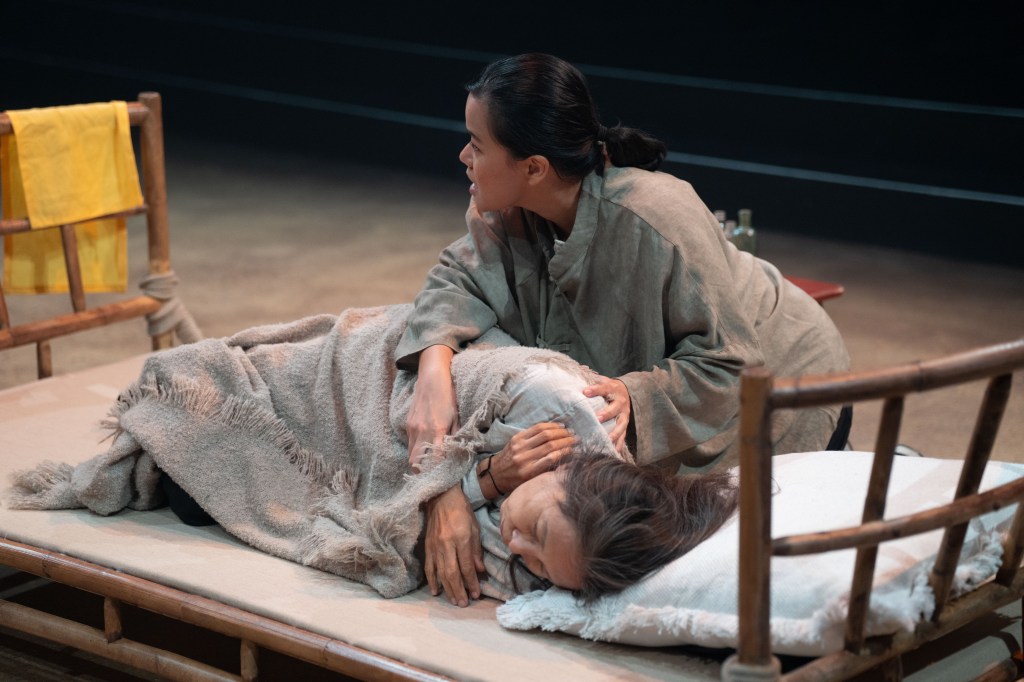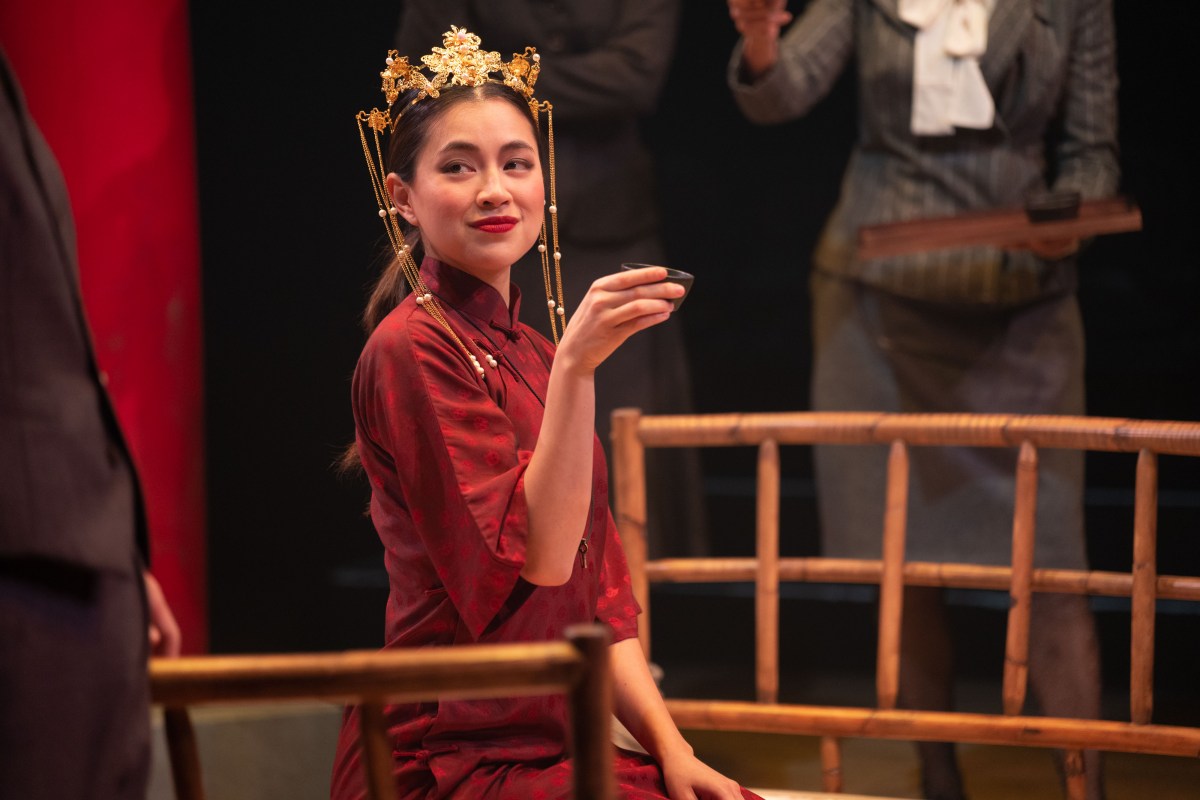The Poison of Polygamy by Anchuli Felicia King is Courtney Stewart’s inaugural production in her first season as Artistic Director at La Boite Theatre. It is epic in scale, set during the Australian Gold Rush, and was inspired by true accounts and events of the period. Adapted by King, of White Pearl fame, from an earlier novel by Wong Shee Ping, the work has had a long gestation period.
A co-production with the Sydney Theatre Company (STC), it will transfer with the same cast to the Wharf Theatre in Sydney after its premiere Brisbane season.
La Boite has long been recognised as an incubator for new Australian work. Courtney Stewart’s vision is to build on that, by making it Australia’s most diverse theatre company. She is also keen to showcase the best of Queensland’s creative talents, with a number of local artists cast in this work. As Stewart is a fourth generation Chinese-Australian, a play about the Chinese diaspora, with eight actors who share her ethnicity, is clearly an ideal work to begin her tenure with the company.
The story centres on an ambitious young man from southern China, Sleep-Sick (Shan-Ree Tan), his nickname derived from his opium addiction, which is consuming him as the play opens. Deeply in debt, he leaves his long-suffering wife, Ma (Merlynn Tong) and, like many before him, journeys to the Australian goldfields to make his fortune.

Lots of adventures befall him and his associates with Act 1 feeling like a personal story of migration issues. In Act 2, however, the play takes a different turn and the intriguing title, The Poison of Polygamy, becomes clearer when Sleep-Sick meets the tantalising Tsiu Hei (Kimie Tsukakoshi). She becomes his concubine and life unravels with disastrous results that include blackmail, betrayal and murder.
King’s English language adaptation is a beautifully crafted work with an excellent use of contemporary language framed within a classical text that is at times quite poetic. Given the themes of human weakness and moral dilemmas, it is almost Shakespearean in its overarching scope as it explores what it meant, and still means, to be Chinese in Australia.
Ping’s novel had a strong evangelical and proselytising element – that of a morality tale examining the virtues of monogamy over polygamy. It also introduced a humorous and entertaining perspective, which King brings out in the play. At nearly three hours in length, however, the work would benefit from some judicious cutting without losing any of its intent or the power of the narrative.
Moreover, the second act seems to be almost a separate play to the first, with the idea of polygamy introduced almost as an afterthought and raised only by the character of the Preacher in three separate monologues. The role of the courtesan, Tsiu Hei, who dominates the second half of the play, could be cut substantially; her text is often repetitive and adds little to the story. We understand who she is very early on.
Stewart’s direction ably brings the text to life drawing finely nuanced characterisations and excellent performances from all the cast. Her attention to detail and her ability to keep the action flowing works well, as does the doubling of roles by most of the cast.

As both the Preacher and Sleep-Sick, Shan-Ree Tan is magnificent. He gives excellent fire-and-brimstone sermons as the Preacher, while his well-modulated voice belies the devious, cunning nature of his character. He also plays the narrator, appearing to analyse the story from afar, managing the change well.
As his wife, Ma, Merlynn Tong is delightful, her goodness and naivety contrasting with that of her self-absorbed husband. Kimie Tsukakoshi makes a first-rate and believable Tsiu Hei, matching the evil nature of Sleep-Sick, and even surpassing it. She plays wickedness extremely well, despite being verbose.
Sleep-Sick’s three associates are all beautifully delineated. As Ching, Ray Chong Nee plays the upright loyal friend, whose hard work and skill are rewarded with a family and a reputable business. He delivers his measured lines eloquently, always keen to avoid disputes.
Gareth Yuen is Pan, the passionate, political character with a positive outlook on life who speaks most of the poetic lines with a clear attention to text. His performance as Doctor Ng, with no scruples, is also well crafted. The third character, Chan, is the most ethical of the three, wanting to do the right thing by the law and objecting to Sleep-Sick’s black market trading. Silvan Rus plays him with great dignity and persuasion. He also gives a fine cameo as Ma’s cousin, persuading Sleep-Sick to go to Australia.
Set in the round, the production has no set to speak of. Six versatile tall red pillars are used variously as walls, arches and parts of a ship. A framed wooden bed is the sole piece of furniture, used mainly for the numerous simulated sex scenes, as the title may imply. There are few props. The smoke machine gets plenty of use, however, creating a smoky dinginess in the opium dens as well as the seascape on the ship to Australia, lending atmosphere and depth to the bare stage.
This is assisted by Ben Hughes’ cleverly designed lighting which, despite being often quite dark, helps move the narrative along between scenes, illuminating mood and atmosphere.
All is all, this is a mixed work with high aims and some interesting ideas that are well delivered by a good cast. The play imparts a number of confusing messages including migration and the early Chinese-Australian experience, the role of women in society (both then and perhaps now) plus a general examination of the human condition.
Through the sole role of the Preacher, monogamy versus polygamy is examined, but in a limited way. ‘Have I saved them?’ asks the Preacher in his last words, and the answer would have to be a resounding and depressing “no”.
Read: Theatre review: Loaded, Malthouse Theatre
For this viewer at least, the most important message that resonated was turning around the myth of the law-abiding, stereotypical Chinese immigrant, while understanding that ultimately human beings are all similar and there are good and bad in all societies. If that had been offered as the key message of The Poison of Polygamy, we may have seen a very different play.
The Poison of Polygamy by Anchuli Felicia King, La Boite Theatre and Sydney Theatre Company
Based on the novel by Wong Shee Ping
Translated by Ely Finch
Playwright: Anchuli Felicia King
Director: Courtney Stewart
Set and Costume Designer: James Lew
Lighting Designer: Ben Hughes
Sound Designer: Guy Webster
Composer: Matt Hsu’s Obscure Orchestra
Choreography: Deborah Brown
Cast: Ray Chong Nee, Hsin-Ju Ely, Silvan Rus, Shan-Ree Tan, Merlynn Tong, Kimie Tsukakoshi, Anna Yen, Gareth Yuen
The Poison of Polygamy was performed at La Boite Theatre at the Roundhouse, Brisbane on Thursday 11 May 2023, and will transfer to Wharf 1 Theatre, Sydney from 8 June to 15 July 2023.





